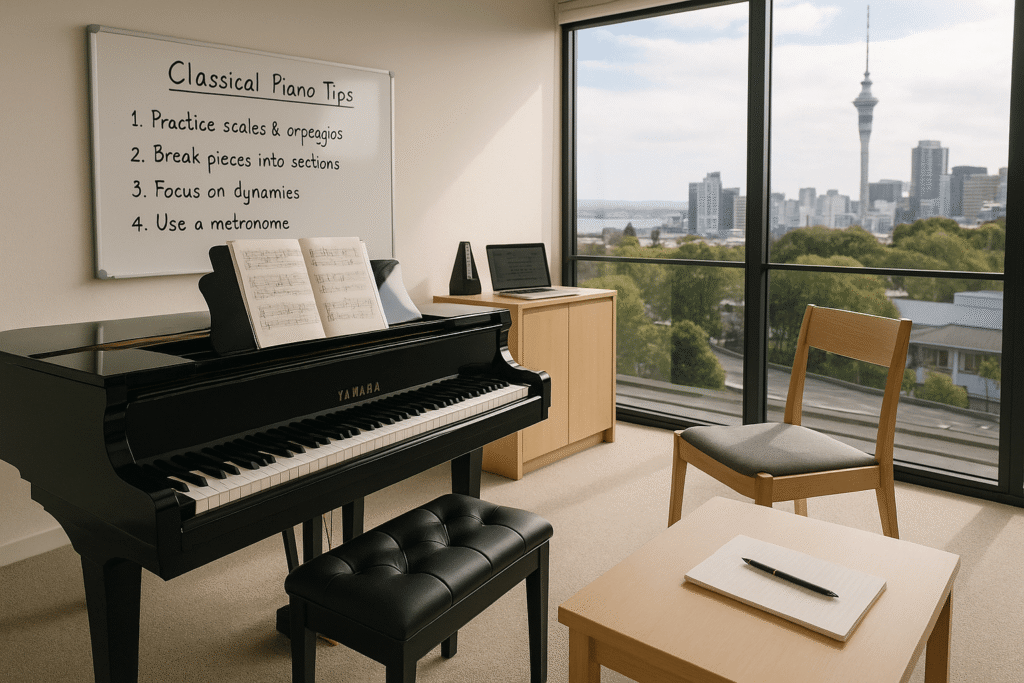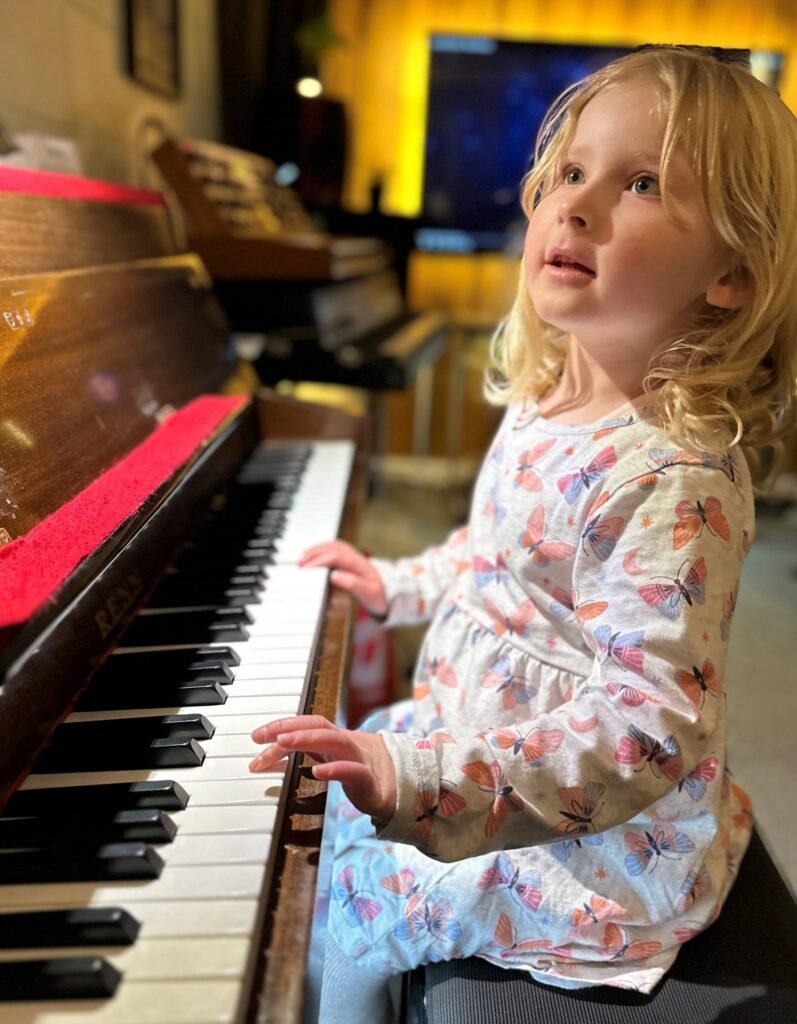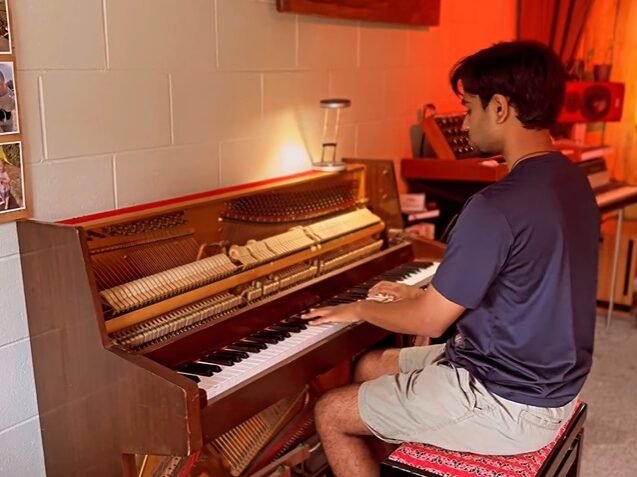Mastering classical piano pieces involves understanding nuances, practising regularly, and developing techniques that enhance musical expression. Classical piano tips can guide both beginners and seasoned pianists to improve their skills effectively.
- Introduction
- Choosing the Right Repertoire
- Practical Practice Strategies
- Why Choose Timothy William for Classical Piano Instruction
- Frequently Asked Questions
- How can I start learning classical piano as a beginner?
- What is the best way to memorise piano pieces?
- How do I improve my finger technique?
- What should I include in my practice routine?
- How long should I practise piano each day?
- Can I learn classical piano online?
- Why is it important to play slowly?
- What are some classical piano tips for maintaining motivation?
Playing classical piano is both an art and a skill that encompasses understanding complex compositions, intricate fingerings, and the emotional depth of music. Whether you’re a seasoned player looking to refine your skills or a beginner stepping into the world of classical music, having a structured approach to learning can make all the difference. This guide on classical piano tips will explore various techniques and insights to help you master classical pieces effortlessly.
Importance of Technique
Classical piano mastery requires not only dedication but also a keen focus on technique. Proper hand positions, the agility of fingers, and rhythmic precision are essential components. By perfecting these basics, pianists can achieve fluidity in their playing and elevate their performances. Understanding scales and arpeggios is also critical as they form the backbone of many classical compositions.
Daily Practice Regimens
Regular practice is the cornerstone of improvement in classical piano playing. Daily routines that include scales, sight-reading, and piece-specific work help in building muscle memory and precision. Setting aside focused, uninterrupted time each day is crucial for progress. Timothy William, a renowned piano teacher in Auckland, New Zealand, emphasises the importance of consistency, urging students to maintain a disciplined practice schedule.
Emotional Connection and Expression
To truly master a classical piano piece, one must connect emotionally with the music. This involves exploring the story behind the composition and expressing it through your playing. By doing this, pianists can convey emotions, making each performance unique and touching to the audience. Developing a personal interpretation of a piece by researching its history and context is a valuable exercise in this regard.
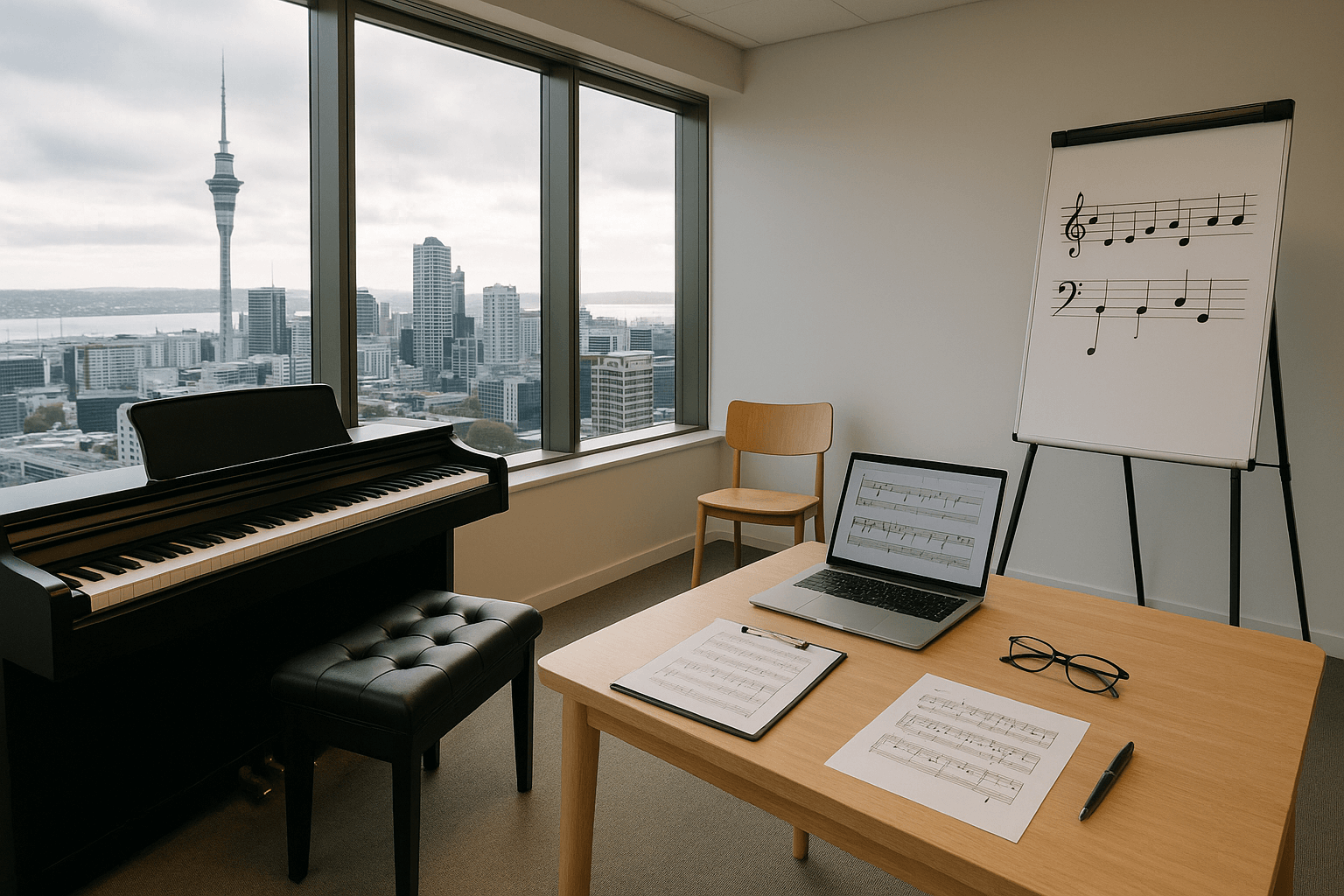
Choosing the Right Repertoire
Choosing the correct repertoire is an essential step in mastering classical piano pieces. Selecting music that aligns with your ability not only aids in skill development but also keeps you motivated and engaged. At Timothy William in Auckland, the right balance of challenge and enjoyment can transform your learning experience, enabling steady progress without unnecessary frustration.
Consider Your Skill Level
Understanding your skill level is the first step in choosing appropriate classical pieces. Beginners should focus on compositions that facilitate learning of fundamental skills, such as hand positioning, rhythm, and dynamics. Pieces by composers like Bach or Beethoven can serve as excellent starting points due to their rich structural simplicity. Intermediate players might venture into Chopin’s Nocturnes or Schumann’s Kinderszenen, which offer both technical challenges and expressive opportunities. Advanced pianists could explore more complex works by Liszt or Rachmaninoff to further hone their virtuosity and interpretation skills.
Consider Your Interests
Another crucial aspect of repertoire selection is personal interest. The enthusiasm for a particular composer or style can significantly boost your practice sessions. If you are passionate about the Romantic era, pieces by Brahms or Debussy might capture your imagination and maintain your focus. Similarly, those drawn to intricate counterpoint and elaborate harmony may find their muse in the works of J.S. Bach or Handel. Choosing music that resonates with you personally ensures that practice remains fulfilling and inspiring, rather than a mere exercise of discipline.
Balance Challenge and Enjoyment
A balanced approach to repertoire selection involves selecting pieces that are challenging yet enjoyable. Such a balance keeps you motivated and prevents burnout. Introducing incrementally difficult pieces slightly above your current level can stimulate growth and challenge without overwhelming frustration. The satisfaction of mastering a technically demanding piece or achieving an artistic interpretation adds to your development as a pianist and enhances your overall musicality.
Guided Selection
For a more tailored approach, seeking guidance from a seasoned piano teacher can be invaluable. Timothy William, an experienced piano instructor in Auckland, can offer personalised recommendations based on your strengths and weaknesses. A mentor’s insight can help you discover new works that expand your repertoire while ensuring that your learning journey is both rewarding and efficient.
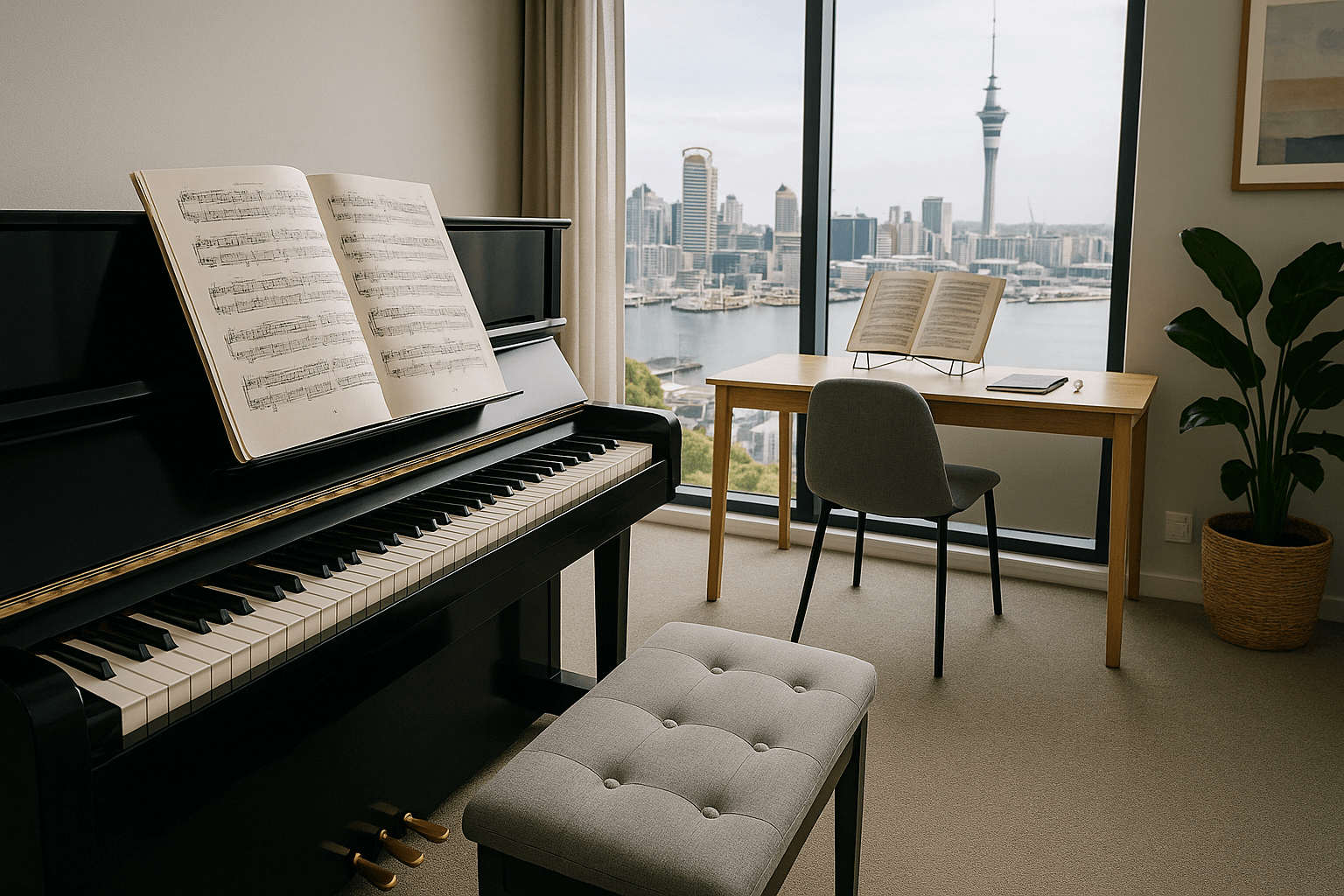
Practical Practice Strategies
Having chosen a repertoire that perfectly suits your skill level and interests, the next step is to approach your practice sessions with strategies that are both effective and sustainable. A rigorous understanding of these strategies can profoundly enhance your journey in mastering classical piano pieces, providing a structured path to harness your potential fully.
Stop and Analyse
One of the most underrated yet powerful tools in a pianist’s toolkit is the ability to pause and dissect the music. Begin each session by focusing on a small segment of the piece and play it slowly. Use a metronome to ensure consistent timing and examine the structure, dynamics, and phrasing. Ask yourself what the composer intended with the passage. This reflective practice not only helps in correcting mistakes but also deepens your interpretative skills, making you a more intuitive pianist.
Progressive Metronome Use
Incorporating a metronome into your practice is not merely for keeping time; it is about gradually building speed while maintaining accuracy. Start at a pace that allows you to play the piece perfectly, then incrementally increase the tempo. This technique is particularly effective for complex pieces and helps in developing muscle memory before increasing speed. Over time, this disciplined practice will result in a polished performance.
Visualisation and Mental Practice
Beyond physical repetition, mental practice is an effective strategy when it comes to mastering classical piano pieces. Spend time imagining yourself playing the piece flawlessly, paying close attention to finger movements and musical nuances. Visualisation can be particularly beneficial when away from the instrument, reinforcing learning and enhancing memory retention. This technique is instrumental in preparing for performances, allowing pianists to approach their pieces with confidence.
Schedule Practice Sessions Effectively
The way you schedule your practice sessions can significantly impact your progress. Timely, regular practice sessions, interspersed with breaks, contribute to effective learning. Breaking down practice time into focused segments allows for targeted improvement, mitigating fatigue and keeping motivation high. Using this method, pianists can cover a wide range of aspects, from technical exercises to expressive playing, each session.
By integrating these strategic approaches into your practice regime, the path to mastering classical piano pieces can become clearer and more attainable. Up next, we will delve into why Timothy William stands as a top choice for learning these piano techniques, ensuring each note you play in Auckland resonates with precision and flair.
Why Choose Timothy William for Classical Piano Instruction
When it comes to mastering the art of classical piano, choosing the right instructor can make all the difference. has established a reputation as the go-to instructor for top piano lessons in Auckland for those serious about advancing their classical piano skills. Timothy’s personalised approach and deep understanding of classical music provide an unparalleled learning experience for students of all levels.
Experienced Local Experts
Timothy William brings a wealth of experience and passion to his teaching. With years of mentoring both beginners and seasoned pianists in Auckland, he has honed a method that not only teaches technique but also nurtures a deep appreciation for the artistry of classical piano. His keen insight into the challenges and triumphs specific to this genre gives students a distinct advantage when tackling complex pieces.
What Sets Us Apart
The distinguishing feature of Timothy’s teaching style is his commitment to understanding each student’s individual needs. Unlike generic programs, his lessons are tailored to guide students through a structured yet flexible learning path. This bespoke approach not only addresses immediate skill-building but also instils a lifelong love for classical music. Additionally, his welcoming and professionally equipped studio offers an ideal environment for both learning and performance preparation.
Timothy’s students consistently achieve high levels of success, often progressing quickly through the grades and excelling in competitions and exams. His dedication to excellence and genuine care for his students’ progress set Timothy apart as the premier choice for classical piano instruction in Auckland.
If you are seeking an inspiring and effective path to mastering classical piano pieces, look no further than Timothy William. With his exceptional guidance, you will be poised to turn your musical aspirations into reality.
The next section, Section 5: “Frequently Asked Questions,” will provide answers to some of the most common inquiries about mastering classical piano. This will offer readers additional clarity and confidence as they embark on their musical journey.
Frequently Asked Questions
How can I start learning classical piano as a beginner?
Beginners should start with simple pieces that build fundamental skills, focusing on sheet music reading and basic techniques. Consider seeking guidance from a skilled teacher in Auckland to tailor your learning path.
What is the best way to memorise piano pieces?
To memorise effectively, break the piece into sections, practise each part slowly, and gradually piece them together. Regular review and practising hands separately can also aid retention.
How do I improve my finger technique?
Improving finger technique involves consistent practice of scales, arpeggios, and exercises such as Hanon and Czerny. Focus on maintaining a relaxed hand position and increasing speed over time.
What should I include in my practice routine?
A well-rounded practice routine includes warm-ups, technique exercises, sight reading, and time dedicated to working on your selected repertoire, ensuring a balanced approach to skill development.
How long should I practise piano each day?
The ideal amount of practice varies by individual goals, but generally, 30–60 minutes daily is beneficial for beginners, while more advanced students might aim for 1–2 hours.
Can I learn classical piano online?
Yes, many resources and online courses are available for learning classical piano. Look for interactive formats that offer personal feedback to ensure progress.
Why is it important to play slowly?
Playing slowly helps in understanding finger positioning, developing musical expression, and preventing mistakes. Accuracy first ensures a strong foundation for increasing tempo.
What are some classical piano tips for maintaining motivation?
Keep motivation high by setting achievable goals, celebrating small victories, and regularly including pieces you enjoy. Mixing challenging works with familiar favourites can enhance enjoyment and sustain interest.

